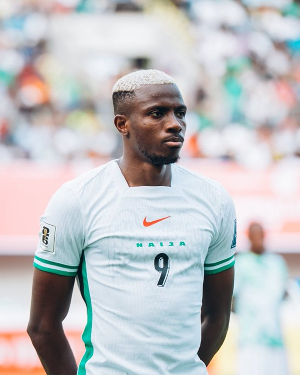Lagos State is on course to become a full-fledged smart city by 2030, Governor Babajide Sanwo-Olu said on Tuesday.
He believes it can happen with the many plans set in motion by his administration.
The governor spoke at the opening of the eighth Lagos Economic Summit (Ehingbeti), held at Eko Hotels and Suites on Victoria Island.
Its theme is: “For a Greater Lagos: Setting the Tone for the Next Decade”.
“The Fourth Mainland Bridge will come to define the cityscape of the 2020s, the same way the Lekki-Ikoyi defined it a decade earlier.
“We will ensure that all of these systems are interconnected and truly multi-modal. The roads, waterways and rail will be integrated and operate in synergy to bring maximum benefit and comfort to the greatest number of commuters.
“We are the smallest state in Nigeria by landmass, with by far the largest population.
“But by 2030, Lagos will be home to one of the largest Rice Mills in the world (Imota Rice Mill).
“We can still aspire, even with our geographical limitations, to feed ourselves and the rest of the country, through the innovative use of technology and a focus on processing and industry.”
“The Lekki Free Zone is rising on the eastern flank of the city, with the mixed-use Alaro City as a flagship investment. Nearby are the Dangote Refinery, which will be the largest single-train refinery in the world, and a Petrochemical Plant, as well as the Lekki Deep Sea Port, which will be Nigeria’s biggest and most important Deep Sea Port.
“We see the potential of becoming a hub of medical tourism with the increasing wave of investment in healthcare infrastructure that we are seeing in the state. If we keep up the pace, by 2030, there will be a steady influx of people from West Africa and beyond coming to Lagos to take advantage of state-of-the-art hospitals. We are pushing ahead with plans to develop, in partnership with the private sector, a Medical Park that will offer world-class medical and diagnostic services in Ikoyi.”
The governor stressed that so much more needs to be done, and promised that his administration’s T.H.E.M.E.S agenda will help harness the full potential of Lagos and shape the state into a competitive mega-city in the new decade.
President Muhammadu Buhari pledged that the Federal Government will support more massive investments in Lagos to boost its economic potential as one of the world’s fastest-growing megacities.
His administration, he said, recognises Lagos as central to the economic fortunes of Nigeria and has, in the last few years, demonstrated commitment to supporting it to unleash its full socio-economic potential.
A statement by the president’s Special Adviser on Media and Publicity, Femi Adesina, reads: “One of the significant ways in which our support has manifested to Lagos is in the special federal funding that we approved in 2020 in acknowledgement of the state being an epicentre of the Coronavirus pandemic.
“The challenges of Lagos must therefore be seen as part of the challenges of Nigeria. Therefore, the Federal Government will support Lagos to overcome its challenges and to thrive socially and economically.
“The Presidential Infrastructure Development Fund (PIDF) is investing in the reconstruction of the Lagos-Ibadan Expressway, while the Apapa-Oshodi-Oworonshoki Expressway is a flagship project of our Road Infrastructure Tax Credit Scheme, also known as Executive Order 7 of 2019.
“This administration also gave approval for Lagos to rebuild the International Airport Road, a major road that links the busiest airport in Sub-Saharan Africa to the continent’s fifth-largest economy.
“The Federal Government is today completing the Standard Gauge Railway Line that will link Lagos to Ibadan in the first instance, and from there connect to Abuja and Kano, and bring ease and efficiency to what is Nigeria’s busiest transportation corridor…”
Newly elected Director-General of the World Trade Organisation (WTO) Ngozi Okonjo-Iweal and President of the African Development Bank (AFDB) Akinwunmi Adesina, called for development in economic infrastructure, investment in youths, and enhanced private sector contribution for Lagos to become the much desired smart city.
Okonjo-Iweala said aside from road construction, Lagos should invest in technology such as broadband for every household, embrace Artificial Intelligence (AI) and digital economy, ensure a steady and sustainable supply of electricity and renewable/green energy to remain competitive in the next decade.
General News of Wednesday, 17 February 2021
Source: thenationonlineng.net
How Lagos will become smart city in 2030 - Sanwo-Olu
Entertainment












